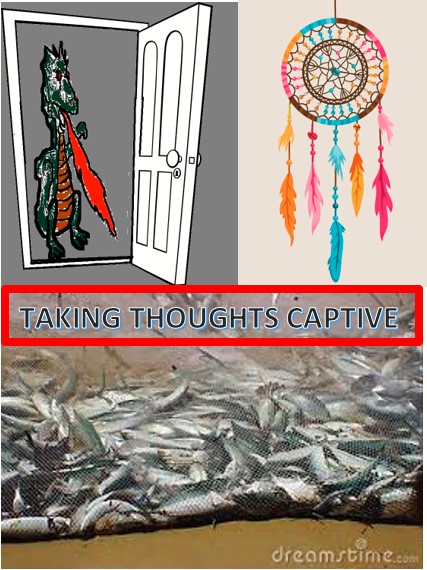-
Vain Imaginations
Not long ago, I attended a retreat at which a college student, freshly discovering his call to an intercessory prayer ministry, spent hours every night praying by name for everyone on the retreat. The last morning when I ran into him, he said, “Sue! As I was praying for you, I received a word from the Lord for you.” Uh-oh. I’d heard this before. And every time I had taken it to the Lord, asking if there were anything to it, the answer was no. My defenses up, I smiled and said, “I’m listening.” He got a very thoughtful look on his face and said, “I have to get it…
-
Taking Thoughts Captive and How to Teach it
Thoughts are a part of life. They happen. We can’t control when or what thought might pop into our minds. There seem to be as many thoughts that come from outside us as those that begin within. It is no different for our children. From the earliest age of forming thoughts, outside forces impose images in our minds that provoke an emotional response. Imagination is a wonderful gift for without it we could not begin to relate to the God we cannot see or touch. Sadly, in a fallen broken world our imagination can be an instrument used to overwhelm us. I compare my thoughts to a massive school of…
-
You Can’t Have Your Cake and Eat It Too
We have all heard the saying, “You can’t have your cake and eat it too,” but most of us don’t really live like we believe it. There are so many areas of our life where we try to live life without any consequence. That is after all the implication. If you eat the cake now, the end consequence is that you won’t have it later. Could there be an area of greater need to believe this truth than the area of our imaginations? I think not. Imagination is a wonderful gift from God. It is the place where most of us live. Ted Dekker, in his book, The Slumber of…
-
Taming the “Look-Imagine-See” Dragon
I have been so saddened in recent months as I’ve seen prominent respected Christians pronounce their interpretation of certain scriptures based on a “look-imagine-see” method. What do I mean by “look-imagine-see?” Someone looks at a verse or passage, imagines what they want it to say, and then sees in their mind what they have imagined through twisting word meanings and interpretations. The result of their teaching feels a lot more comfy and cozy with the prevailing cultural views but is not intellectually honest. And, it really boils down to basing truth on someone’s opinion. Cultural influence on Bible interpretation feeds this “look-imagine-see” method. You look at the passage, imagine a…















